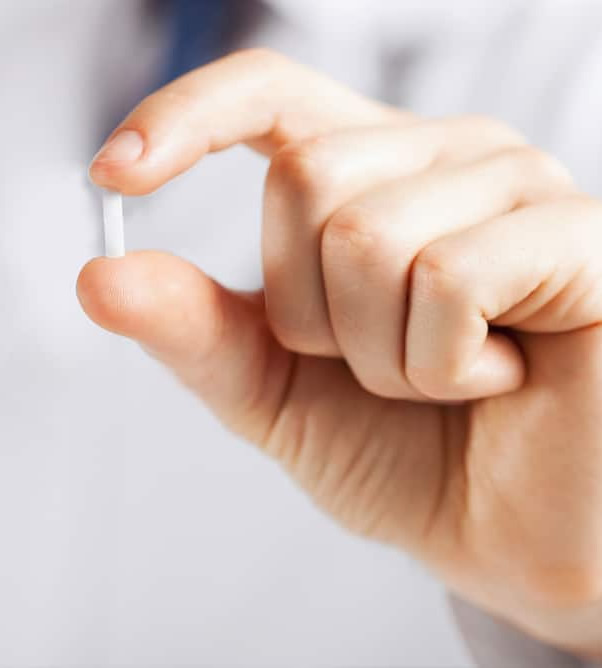Bioidentical Hormone Replacement Therapy (BHRT)
Improve energy levels, & enhance overall well-being
What is Bioidentical hormone replacement therapy (BHRT)?
Bioidentical hormone replacement therapy (BHRT) is a treatment designed to balance hormone levels in the body using hormones that are chemically identical to those naturally produced by the human body. This therapy is primarily used to address symptoms associated with hormonal imbalances, such as those experienced during menopause, andropause, or other conditions that cause hormone deficiencies or excesses.
BHRT involves a comprehensive evaluation by a the Virtue Anti-aging team which assesses the patient's hormone levels through blood tests, saliva tests, or other diagnostic methods. Based on the results, we will create a personalized treatment plan is developed, which may include the administration of bioidentical hormones in the form of creams, gels, patches, pills, or injections.
The goal of BHRT is to restore optimal hormone levels, thereby alleviating symptoms such as hot flashes, night sweats, mood swings, weight gain, low libido, fatigue, and sleep disturbances. Additionally, BHRT is believed to offer benefits such as improved energy levels, enhanced mood, increased muscle mass, and better overall quality of life.
While BHRT is considered a natural and more physiologically compatible approach to hormone replacement. Our BHRT therapy is tailored to each individual's unique hormonal needs and monitored regularly to ensure effectiveness and safety.
Symptoms & Conditions
Patients may consider bioidentical hormone replacement therapy (BHRT) if they experience symptoms and conditions indicative of hormonal imbalances. These can include:
- Menopause Symptoms: Hot flashes, night sweats, irregular periods, vaginal dryness, and mood swings.
- Andropause Symptoms: Decreased libido, erectile dysfunction, fatigue, depression, and loss of muscle mass.
- Chronic Fatigue: Persistent tiredness that does not improve with rest.
- Mood Disorders: Anxiety, depression, irritability, and mood swings.
- Sleep Disturbances: Insomnia, night sweats, and frequent waking.
- Weight Gain: Unexplained weight gain, particularly around the abdomen.
- Cognitive Issues: Memory loss, brain fog, and difficulty concentrating.
- Sexual Dysfunction: Reduced libido, vaginal dryness, painful intercourse, and erectile dysfunction.
- Bone Density Loss: Increased risk of osteoporosis or frequent fractures.
- Skin and Hair Changes: Thinning hair, dry skin, and loss of skin elasticity.
- Menstrual Irregularities: Irregular periods, heavy bleeding, or severe PMS.

What are the most common hormone treatments for BHRT therapy?
The most common hormone treatments used in bioidentical hormone replacement therapy (BHRT) include:
- Estrogens: Often prescribed for women experiencing menopause symptoms. Common bioidentical forms include estradiol, estrone, and estriol.
- Progesterone: Used alongside estrogen to balance hormone levels and reduce the risk of endometrial cancer in women with a uterus.
- Testosterone: Used for both men and women to address low libido, fatigue, and muscle mass loss.
- DHEA (Dehydroepiandrosterone): A precursor hormone that can be converted into estrogen or testosterone, used to improve energy, mood, and overall well-being.
- Thyroid Hormones: Used to treat hypothyroidism, including bioidentical forms of thyroxine (T4) and triiodothyronine (T3).
These hormones can be administered in various forms, such as creams, gels, patches, pills, or injections, and are tailored to each individual's specific hormonal needs.
Get Treated Sooner
Because we’re highly specialized, with seven treatment locations in the St. Louis area, we’re able to schedule your exam and treatment much sooner than other facilities. Call us at 314-956-1818 or complete this contact form to get started.
Schedule a Consultation
What To Expect
Initial Consultation
Dr. Krikorian will discuss the patient's medical history, symptoms, and overall health concerns. This includes a detailed conversation about the patient's lifestyle, diet, and any current medications..
Diagnostic Testing
Dr. Krikorian will order hormone level tests, which may include blood tests, saliva tests, or urine tests, to assess the patient's hormonal balance accurately.
Personalized Treatment Plan
Based on the test results and the patient's symptoms, Dr. Krikorian will develop a customized BHRT treatment plan.
Education and Counseling
Dr. Krikorian will explain the benefits and potential risks of BHRT, how to use the prescribed hormones, and what lifestyle changes might support the therapy. This may include dietary advice, exercise recommendations, and stress management techniques.
Regular Monitoring
The patient will have follow-up appointments to monitor the therapy's effectiveness and make any necessary adjustments. This includes periodic hormone level testing and symptom evaluation to ensure the treatment is achieving the desired results.
Ongoing Support
Dr. Krikorian will offer ongoing support and guidance throughout the treatment, addressing any concerns or side effects the patient may experience and making adjustments to the therapy as needed.

"No More Pain"
MaryAnn R.

"I Walked 2 Miles the Next Day!"
Shirley M.

"They Listen Very Well!"
Jeff K.

"Very Knowledgable!"
Happy Patient

"My Leg is Feeling So Much Better!"
Marlene G.
BHRT Therapy FAQ
BHRT stands for bioidentical hormone replacement therapy, which uses hormones that are chemically identical to those produced by the human body to treat hormonal imbalances.
Individuals experiencing symptoms of hormonal imbalance, such as those related to menopause, andropause, chronic fatigue, mood disorders, or sexual dysfunction, may be good candidates for BHRT.
BHRT uses hormones that are chemically identical to natural human hormones, while traditional HRT often uses synthetic hormones or those derived from animal sources.
Benefits can include relief from menopausal symptoms, improved energy levels, enhanced mood, better sleep, increased libido, and improved overall well-being.
As with any therapy, there can be risks and side effects, such as blood clots, stroke, and breast cancer. It’s essential to discuss these with your healthcare provider and to have regular monitoring.
Some patients may start to notice improvements within a few weeks, but it can take several months to experience the full benefits.


